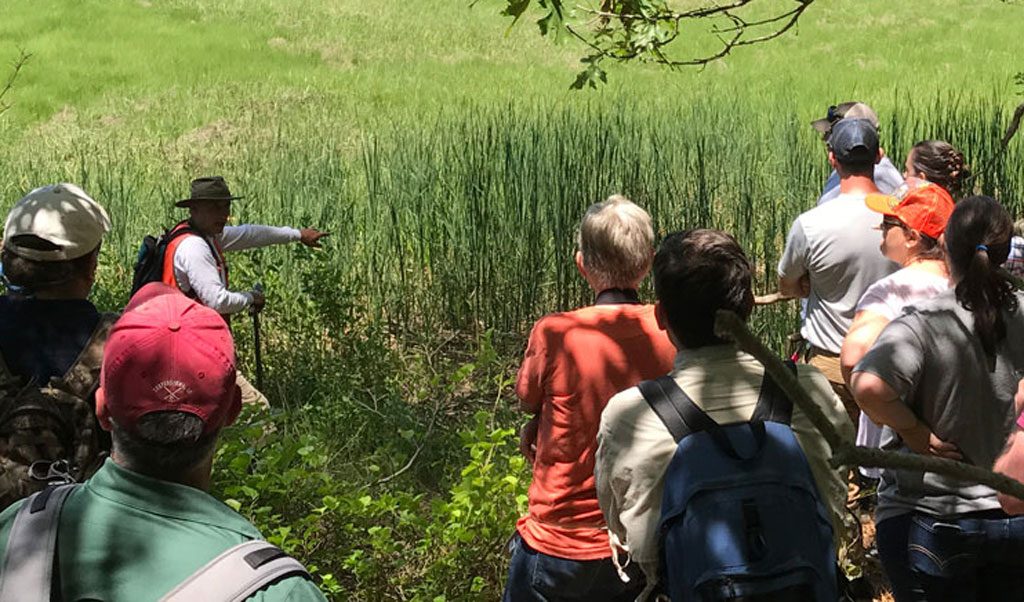Extension: Training in Wetland Delineation Leads to Better Protection

About once a month, Woods Hole Sea Grant Coastal Processes Specialist Greg Berman and his colleague at Massachusetts Coastal Zone Management meet with a network of conservation commission agents from around the Cape.
“We facilitate the meeting to provide a forum for the agents to learn from each other. We also arrange for speakers on various relevant topics,” Berman says. It was during one of the meetings the agents identified a need for a local training on wetland delineation.
Each year in Massachusetts, dozens of wetlands are threatened by development projects that could degrade their functions. Determining if a project is in a wetland requires training. Project applicants often hire a private consultant to make that delineation, which the town conservation agents can then confirm or challenge. But many of these officials do not have the background (or their skills may have gotten rusty) to assess a project’s impact on the coast.
To remedy the situation, Woods Hole Sea Grant (WHSG), Cape Cod Cooperative Extension, and Massachusetts Coastal Zone Management provided wetland delineation training in June 2017 for 10 of the 15 Cape Cod conservation agents. These agents manage over two-thirds of the coastal resources in the county.
This course included one half day in the classroom, and two half days in the field. It covered the basic approach for delineating wetlands in Massachusetts and then applied the field protocol under several scenarios. The agents in the field determined when and how to delineate based on vegetation alone and when soil moisture information was needed. The agents also received an introduction to vegetation sampling, soil characterization, and examples of hydrologic indicators. Interspersed was basic plant identification, how to read the landscape to predict the source and fate of water, and how these factors affect wetland functioning.
The training received by these local coastal managers helped ensure that the natural and beneficial functions of coastal landforms were sustained. Since this training, more than 100 coastal projects have benefited from this additional expertise, with similar numbers expected in subsequent years.
“All of the agents and conservation commissioners who attended the meeting indicated that it was a worthwhile experience,” Berman says. “Less than a year later, the network was already asking us to conduct another training.” The next course will be held in October 2018.
Published September 2018.
